Saab 9-5 BioPower

The new look Saab 9-5 Sedan and SportCombi range is further enhanced for Model Year 2007 by the introduction of a more powerful BioPower engine. This follows a series of bold styling changes and chassis upgrades that have combined to give the current range a fresh, more dynamic cutting edge. The addition of a 210 bhp BioPower variant, delivering 14 per cent more maximum power and 11 per cent more torque when running on E85 bioethanol fuel, will extend Saab’s leadership of the premium ‘flex-fuel’ segment.
The new Saab 9-5 2.3t BioPower model goes on sale in Nordic markets, UK and Ireland later this year, with other European countries to follow. Available in a choice of Sedan and SportCombi bodystyles with manual or automatic transmission, it is being offered in addition to the current 2.0t BioPower model, which is already established as Sweden’s the best selling ‘environmentally-friendly’ vehicle. Both cars combine the benefits of ‘going green’, through cutting carbon dioxide emissions, with the enjoyment of even sportier driving performance. A further practical advantage of the BioPower formula allows customers to run on gasoline and/or E85 fuel in any proportions without the need to make adjustments. Running on E85, the new Saab 9-5 2.3t BioPower engine delivers maximum power of 210 bhp and 310 Nm of torque, compared to 185 bhp and 280 Nm when using gasoline. As an example of the increased performance, the Sedan with manual transmission accelerates from zero to 100 kph in 7.9 secs and 80-120 kph in fifth gear in 11.0 secs, compared to 8.5 and 12.6 secs when running only on gasoline.
The adaptability of Saab’s powerful Trionic engine management system has facilitated re-programming to accommodate the different ignition timing and fuel/air mixture requirements of E85 fuel. Trionic monitors fuel quality after every visit to the filling station and automatically makes any adjustments necessary for running on E85 and/or gasoline in any combination. That means Saab BioPower drivers can also use gasoline, should E85 not be available. E85 has a much higher octane rating (104 RON) than gasoline (95 RON), and turbocharging allows the use of a higher boost pressure and more advanced ignition timing – giving more engine power – than is possible on gasoline without risk of harmful ‘knocking’ or pre-detonation. The only hardware modifications necessary are more durable valves and valve seats, and the use of bioethanol-compatible materials in the fuel system, including the tank, pump, lines and connectors. Bioethanol fuel is produced commercially from agricultural crops, such as corn and sugar cane. Unlike gasoline, its consumption does not raise atmospheric levels of carbon dioxide (CO2), the main ‘greenhouse’ gas. This is because emissions during driving are balanced by the amount of CO2 that is removed from the atmosphere when crops for conversion are grown. It is currently blended 85% bioethanol/15% gasoline and sold in Sweden, and a growing number of other European markets, as E85 fuel.
“The launch of a 2.3 turbo model is a logical next step in the roll-out of our successful BioPower concept,” says Jan-Åke Jonsson, Saab Automobile’s Managing Director. “It is being offered in response to customer demand for an eco-friendly vehicle that delivers even more performance and is the first in a number of future BioPower initiatives that we have under development.” Externally, the Model Year 2007 range is distinguished by the addition of a dark, ‘Titan’, gray metallic paint finish.

























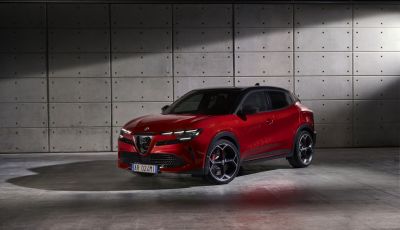
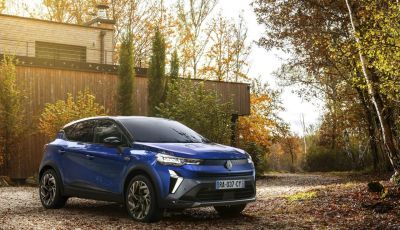
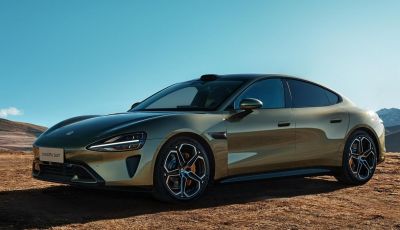
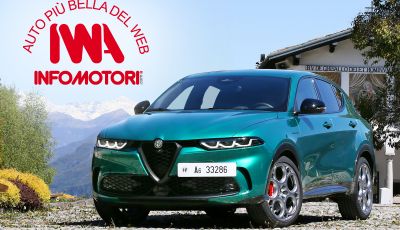
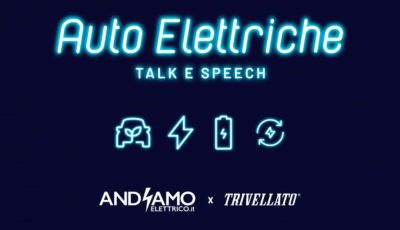
![[VIDEO] Jaguar I-Pace, test drive del SUV elettrico a trazione integrale](https://www.infomotori.com/content/uploads/2021/09/Speciale-Jaguar-IPACE-400x230.jpg)
![[VIDEO] Nuova Citroen AMI, il veicolo elettrico perfetto per la città](https://www.infomotori.com/content/uploads/2021/07/Speciale-Citroen-AMI-400x230.jpg)
![[VIDEO] Nuova Fiat Tipo Cross, il crossover che mancava](https://www.infomotori.com/content/uploads/2021/05/Speciale-Fiat-Tipo_cross-2-400x230.jpg)


